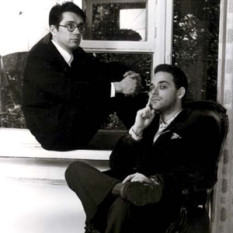Decadence can refer to a personal trait, or to the state of a society (or segment of it). Used to describe a person's lifestyle, it describes a lack of moral and intellectual discipline, or in the Concise Oxford Dictionary: "a luxurious self-indulgence". In a society, it describes corrosive decline due to a perceived erosion of necessary moral traditions. (A society that discards unnecessary and outmoded values would not be considered decadent, although perceptions of "unnecessary and outmoded" significantly vary.) Due to arguments over the nature of morality, whether a society is decadent or not is a matter of debate, though certain historical societies (such as ancient Rome near its end) are generally held to have been decadent, as decadence often leads to objective decline.
Decadent societies are often prosperous but usually have severe social and economic inequality, to such a degree that the upper class becomes either complacent or greedy, while the lower classes become hopeless and apathetic. The middle class may exhibit either or both patterns, or it may vanish entirely. Poor leadership is generally held to be both a cause and a symptom of decadence, as the lifestyle of a decadent individual is usually considered to be incompatible with responsibility. Applied to the arts, decadence implies an elevation of self-indulgence and pretension over effort and talent; when applied to science and the professions, it describes an erosion of professional ethics. Individual or collective greed is generally disliked in societies with strong moral beliefs, and for this reason, societies that nurture it are sometimes accused of decadence.
Societies that persist in a state of decadence may become unable or unwilling to commit to their own upkeep and fall into decline. One historical perspective on ancient Rome is that it became decadent due to a succession of unstable emperors like Nero and Commodus. While they ruled centuries before the fall of Rome, their leadership may have played a role in its decline. This point of view may also be biased by later interpretation; beyond his unpredictability Nero was popular with the lower class during his reign. Caligula only reigned a few years. See also: Roman decadence.
Contemporary post-industrial societies such as the United States and Western Europe are sometimes accused of decadence, the argument being that consumerism, materialism, and selfishness have eroded traditional moral values of community, democracy, and the work ethic. Some critics, like James Howard Kunstler, have alleged that American decadence has reached such a degree that the society is or will be unable to solve its own environmental and ecological problems. In America Alone: The End of the World as We Know It, writer Mark Steyn argues that decadent lifestyles in the developed world (with the sole exception of the United States) have led to demographic and social decay.
In literature, the Decadent movement—late nineteenth century fin de siècle writers who were associated with Symbolism or the Aesthetic movement—was first given its name by hostile critics, and then the name was triumphantly adopted by some writers themselves. These "decadents" relished artifice over the earlier Romantics' naive view of nature (see Jean-Jacques Rousseau). Some of these writers were influenced by the tradition of the Gothic novel and by the poetry and fiction of Edgar Allan Poe.
Oscar Wilde gave a curious definition: "Classicism is the subordination of the parts to the whole; decadence is the subordination of the whole to the parts." .







